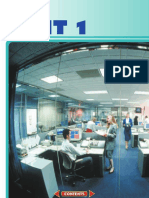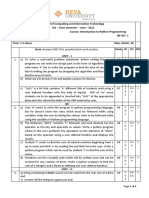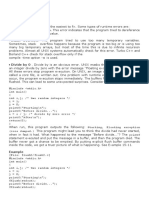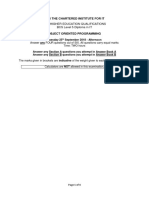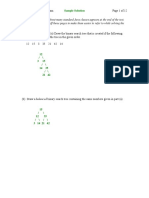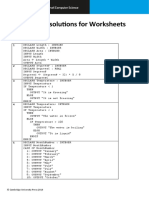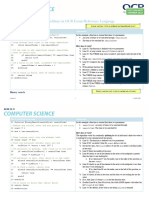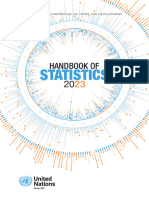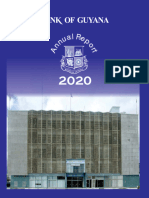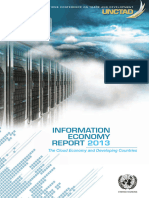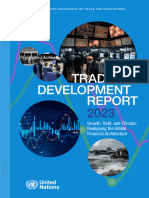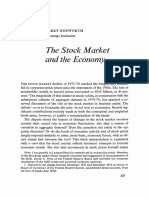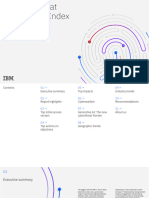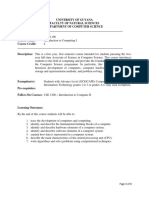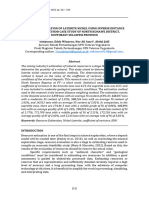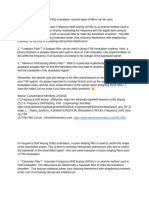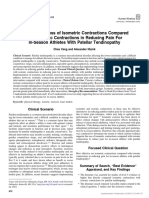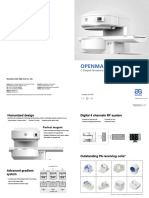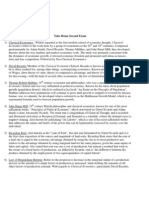0% found this document useful (0 votes)
238 views4 pagesCSE 1201 - Programming Course - Outline
This document provides information on the Introduction to Programming course offered by the University of Guyana's Department of Computer Science. The 4-credit course introduces procedural programming using the C language and covers topics like basic terminology, transforming source code to executable programs, programming paradigms, and writing and debugging programs in C. It includes both lectures and labs over 15 weeks, assessing students with tests, assignments including labs and a project, and a final exam.
Uploaded by
iatfirmforyouCopyright
© © All Rights Reserved
We take content rights seriously. If you suspect this is your content, claim it here.
Available Formats
Download as PDF, TXT or read online on Scribd
0% found this document useful (0 votes)
238 views4 pagesCSE 1201 - Programming Course - Outline
This document provides information on the Introduction to Programming course offered by the University of Guyana's Department of Computer Science. The 4-credit course introduces procedural programming using the C language and covers topics like basic terminology, transforming source code to executable programs, programming paradigms, and writing and debugging programs in C. It includes both lectures and labs over 15 weeks, assessing students with tests, assignments including labs and a project, and a final exam.
Uploaded by
iatfirmforyouCopyright
© © All Rights Reserved
We take content rights seriously. If you suspect this is your content, claim it here.
Available Formats
Download as PDF, TXT or read online on Scribd
/ 4










